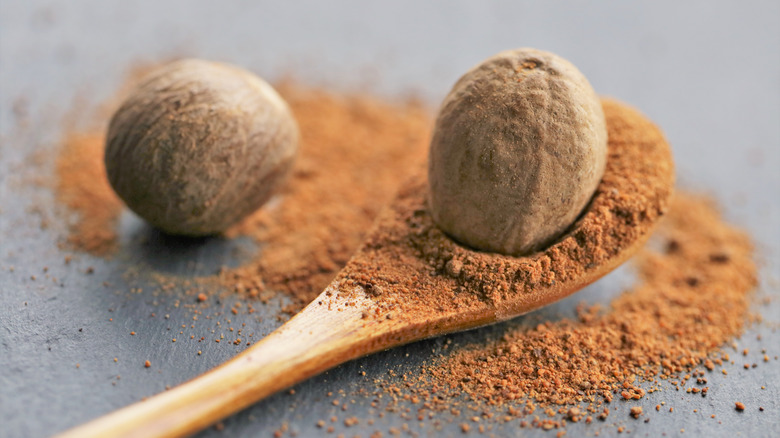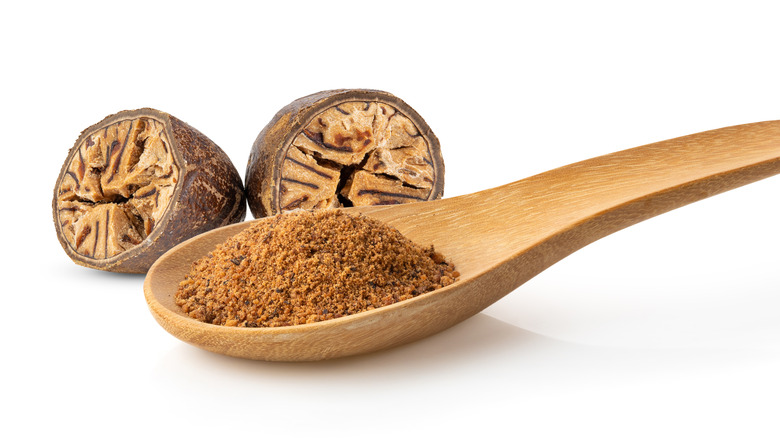The Surprising Effect Too Much Nutmeg Can Have On You
Who doesn't love nutmeg? If you've ever tasted this spice, you've probably come to associate it with fall-themed pastries such as pumpkin pie, gingerbread, and apple cake, all of which commonly contain nutmeg. It's also found in holiday drinks like eggnog (and eggnog milkshakes). Don't forget the delicious pumpkin spice lattes!
According to The Spruce Eats, nutmeg comes from an Indonesian evergreen tree called Myristica fragrant. Nutmeg forms the inner part of the tree's seed while another spice, mace, forms the outer part of the seed. After the seeds are dried in the sun, the nutmeg will rattle inside the mace, and the two spices can be separated from each other. Nutmeg, which is sold both whole and powdered, is the less intense of the two spices, featuring a warming, sweet, and delicate flavor and aroma that makes it a favorite for baked goods and even savory dishes such as butternut squash soup and vegetable gratins (via The Spruce Eats).
If you like nutmeg, you may have heard an urban legend that says eating too much of it can get you high. Is there any truth to the urban legend? Read on to find out.
Yes, nutmeg can get you high
It's true. If you ingest too much nutmeg, you can get "high," though a better term might be "poisoned," because the effects are unpleasant. According to Healthline, the technical term for a nutmeg high is nutmeg intoxication, and it includes symptoms such as hallucinations, drowsiness, dizziness, and confusion.
Literature on nutmeg intoxication goes back at least as far as the 1500s when a pregnant woman who ate more than 10 nutmeg nuts fell ill. Over time, the world grew privy to the dangers of consuming too much nutmeg, but it wasn't until the 1800s, according to Healthline, that researchers found the reason why. Myristicin, a natural compound found in many plants that can affect the central nervous system, is the culprit — and nutmeg contains high amounts.
You might think you'd have to ingest an incredibly high amount of nutmeg to get intoxicated, but the doses indicated in reports of nutmeg poisoning vary. In 2015, The Netherlands Journal of Medicine published a case study of a 37-year-old internist who had added about 2 teaspoons of nutmeg to her dinner at a conference. The next morning, she couldn't find the dining hall in her hotel and didn't recognize her colleagues, who rushed her to the emergency room. Discharged without a diagnosis, the internist later discovered the cause of her symptoms, which subsided after 36 hours. Small amounts of nutmeg can be safely and deliciously consumed, but anything approaching at least a 2-teaspoon serving may experience some scary consequences.

